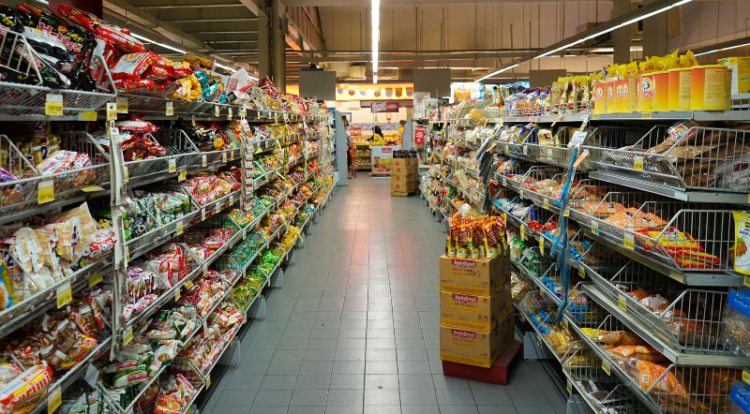With the pandemic continuing to affect how daily life is navigated, the impending dangers presented by COVID-19 have effectively dampened mobility and access to the necessities that people are largely accustomed to. Likewise, businesses across several key industries have also had to adjust operations to continually meet the needs of consumers—and one such example are supermarkets.
In 2020, the United States’ grocery sales leaped by 54% with the industry registering a total of 95.82 billion USD as per an industry report by eMarketer. For 2021, the same report suggests that such growth will continue as the predicted figure for total grocery sales is currently at 112.9 billion USD.
Likewise, a similar trend can be observed within Asia wherein various grocery chains are taking steps to digitally transform their businesses. 
Business in the Digital Age
Given that the success of the digitalization of grocery delivery in Asia is heavily reliant on the volume of users within a digital space, the growing adoption rate of e-commerce in ASEAN consumer markets is an encouraging sign. According to a 2020 industry report, the Southeast Asian region underwent a significant change as internet users increased to approximately 400 million. Catalyzed by the growing number of digital consumers, the e-commerce sector’s overall value is set to reach 146 billion USD by 2025 wherein online groceries are expected to play a major role.
How these groceries are undergoing digital transformation is also an important point of consideration when analyzing domestic business activity in the digital age. For example, in India, groceries as providers of essentials have witnessed an increase in purchase volume due to offering the convenience of same-day delivery. To meet and process the demand for goods, popular domestic retailers like Grofers, FlipKart, and BigBasket have turned to establishing local fulfillment centers to expedite the online delivery process.
Similarly, China’s MissFresh—an online grocery that specializes in the supply of high-quality fresh food and ingredients—has recently partnered with tech giant Tencent to bolster its B2B (Business-to-Business) and cloud retail efforts with local vendors who struggle to achieve an online presence. Comparable initiatives can be seen throughout other countries in Asia, such as Philippine grocery chain Puregold’s release of a mobile app, or even SEA app giants’ Grab and Lazada expanding into grocery delivery services. 
While the transition of supermarkets to online platforms can largely be attributed to temporary lifestyle changes that the pandemic has introduced, there is most definitely a long-term effect. By showing that online delivery and purchase of supermarket goods is possible under the current circumstances, the option to do so under normal conditions will certainly be appealing to future consumers for a variety of reasons, such as convenience, accessibility, and safety.
As such, there is now an opportunity to further invest and foster business opportunities within the future of this segment. For instance, in the Philippines, new grocery player MerryMart recently launched an IPO in June 2020 despite the presence of dominant retail competitors like SM Supermarket, Robinsons, and Puregold.
Furthermore, the digitalization of supermarkets can contribute economic benefits as well. Based on research conducted by YCP Solidiance’s Middle East offices, data reflected that online grocery businesses played a significant role in the boost of Saudi Arabia’s e-commerce industry. For instance, Saudi Arabian online grocery Noon pioneered the concept of establishing dark stores, which are essentially warehouses that act as micro-fulfillment centers. By doing so, the business reduced delivery costs and optimized operations as the structure of dark stores allowed for better inventory and order management, as well as long-term improvements in the country’s overall supply chain.
Overall, the digital transformation of supermarkets across Asia is beneficial for both consumers and retailers alike. Considering online supermarkets' many advantages, it will be no surprise if these platforms will continue to thrive in a post-pandemic world.
For similar insight into how businesses in Asia are digitally transforming, subscribe to our newsletter here.







